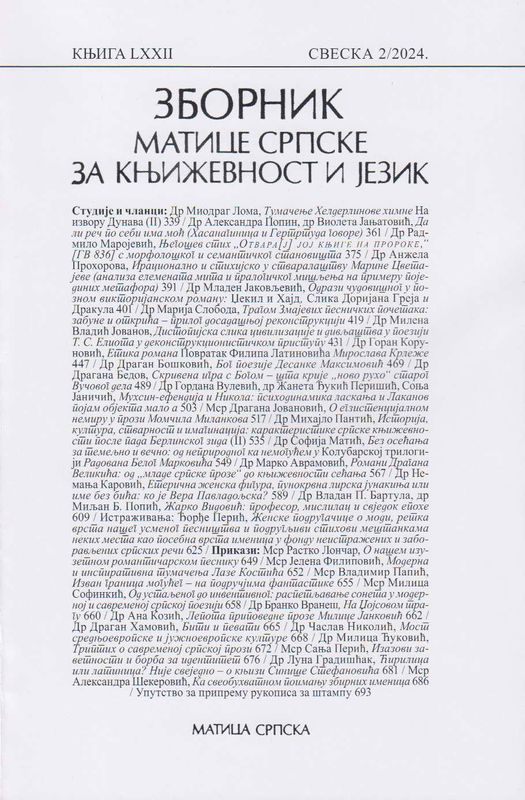ДА ЛИ РЕЧ ПО СЕБИ ИМА МОЋ (ХАСАНАГИНИЦА И ГЕРТРУДА ГОВОРЕ)
Does language inherently hold power? (Hasanaginica and Gertrude speak)
Author(s): Aleksandra R. Popin, Violeta M. JanjatovićSubject(s): Serbian Literature, South Slavic Languages, Theory of Literature
Published by: Матица српска
Keywords: feminism; postcolonialism; Hamlet; Hasanaginica; Margaret Atwood; Ljubomir Simović
Summary/Abstract: Drawing on the ideas of poststructuralists, postcolonialists (led by Edward Said) and their discourse on the creation of literary canons and the relationships between the center and the margins, that is, the notion that narrative power or the ability to silence certain narratives is of great importance to culture, has led to a significant overlap bet- ween feminism and postcolonialism. Both theories aim to question the canon and include neglected voices within it. Revisions of canonical texts and their adaptations serve this purpose. This paper will engage in a comparative analysis of the adaptations of original works ‒ Ljubomir Simović’s drama Hasanaginica and the famous Act 3, Scene 4 of Sha- kespeare’s Hamlet, presented in the form of a short story titled “Gertrude Talks Back” by Margaret Atwood. Gertrude is one of the most intriguing heroines in world literature, both due to the ambiguity of Shakespeare’s text and the fact that her voice is barely heard in the work, leaving room for numerous questions and interpretations from the only offered ‒ domi- nant perspective: Hamlet’s speech reaffirms the power of male language. Atwood attempts to demonstrate the possibilities of female speech, which would transform established concepts, through which women are portrayed in canonical texts.
Journal: Зборник Матице српске за књижевност и језик
- Issue Year: 72/2024
- Issue No: 2
- Page Range: 361-373
- Page Count: 13
- Language: Serbian

